4. 플레이어의 남은 목숨 세기
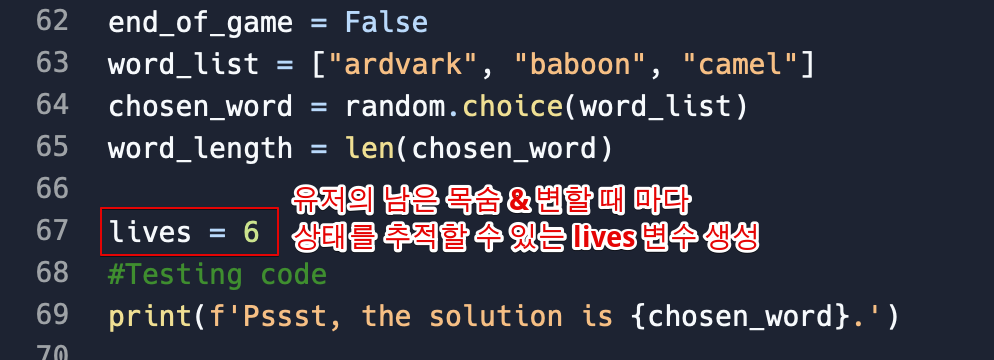
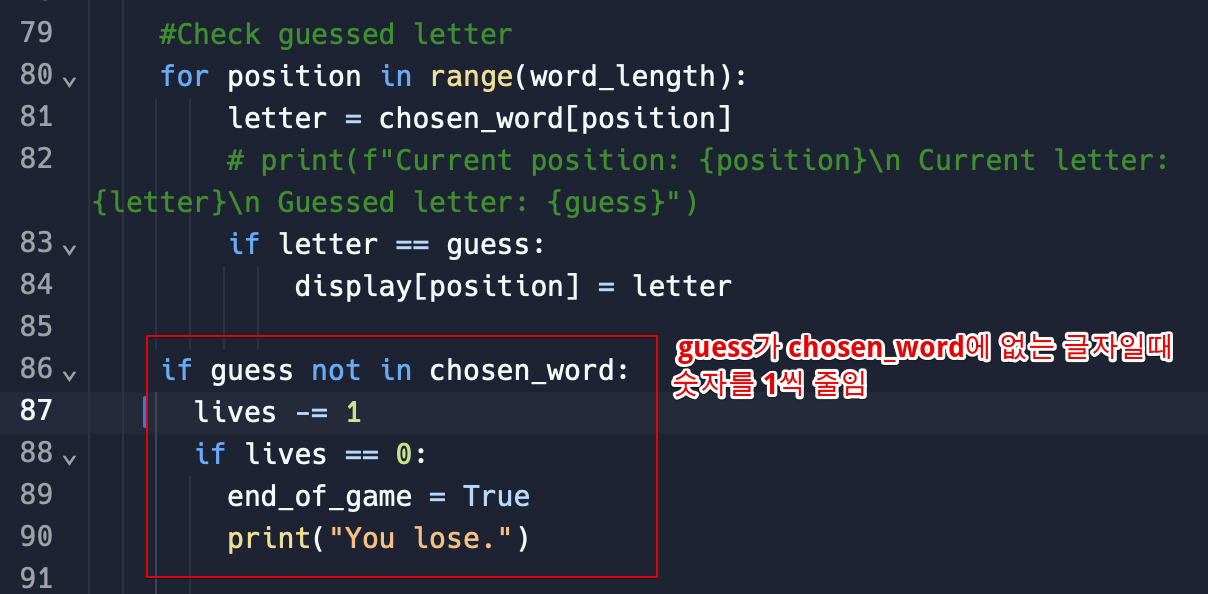
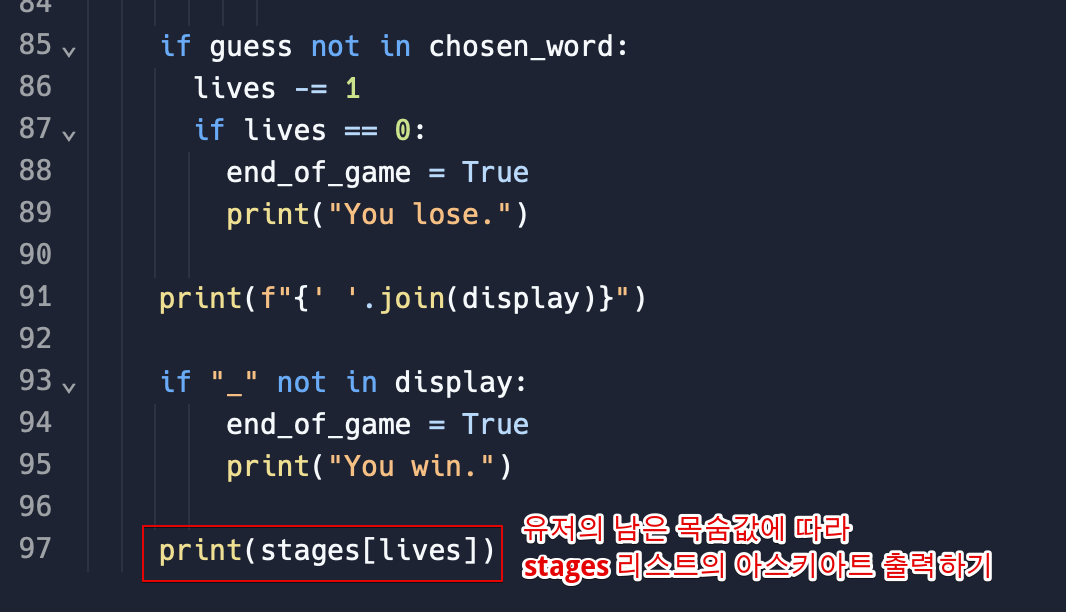
5. 사용자 경험 개선하기



Final code
import random
from hangman_words import word_list
chosen_word = random.choice(word_list)
word_length = len(chosen_word)
end_of_game = False
lives = 6
from hangman_art import logo
print(logo)
display = []
for _ in range(word_length):
display += "_"
while not end_of_game:
guess = input("Guess a letter: ").lower()
if guess in display:
print(f"You've already guessed {guess}")
for position in range(word_length):
letter = chosen_word[position]
#print(f"Current position: {position}\n Current letter: {letter}\n Guessed letter: {guess}")
if letter == guess:
display[position] = letter
if guess not in chosen_word:
print(f"You guessed {guess}, that's not in the word. You lose a life.")
lives -= 1
if lives == 0:
end_of_game = True
print("You lose.")
print(f"{' '.join(display)}")
if "_" not in display:
end_of_game = True
print("You win.")
from hangman_art import stages
print(stages[lives])
Functions with Inputs / Arguments & Parameters 차이
More Functions
입력값이 있는 함수
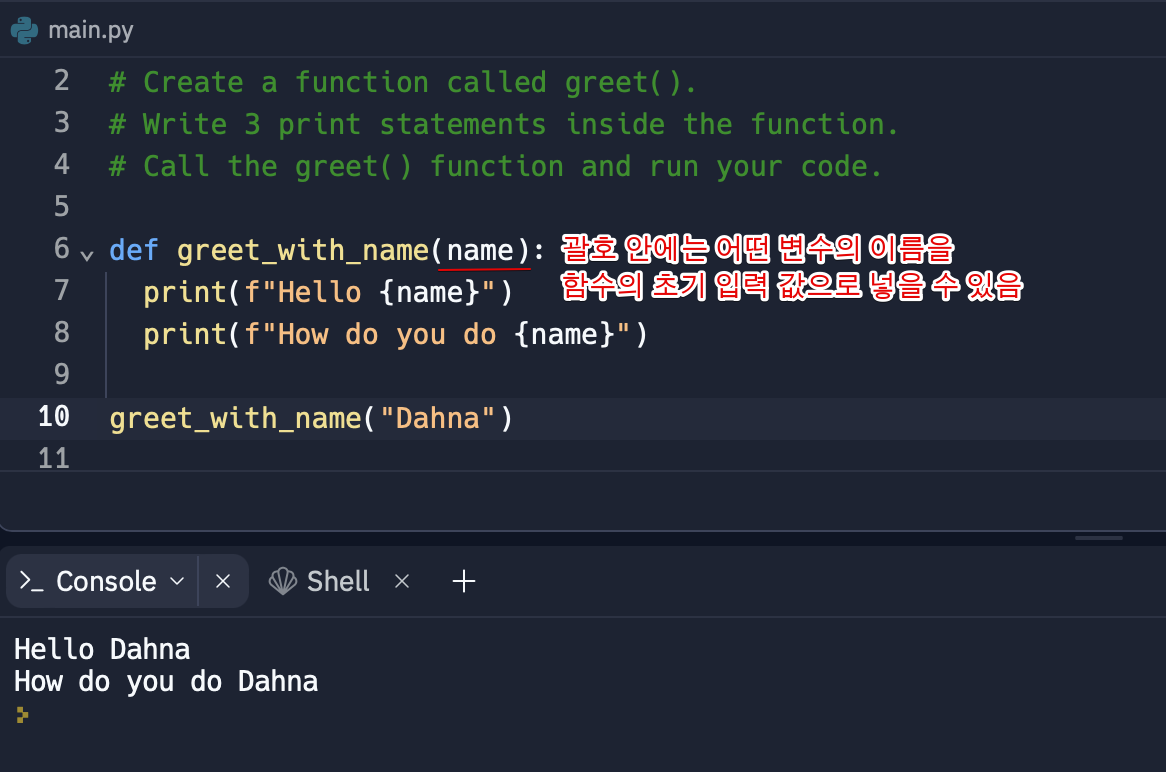

위치 인자와 키워드 인자
위치 인자(Positional Argument) 함수를 호출할 때 어떤 파라미터에 어떤 데이터가 할당 될지 특정하지 않고 위치만으로 결정하기 때문에 위치 인자(Positional Argument)라고 함 이는 코드를 작성할 때 어떤 데이터가 어디에 들어갈지 힌트가 보일뿐만 아니라 함수에서 파라미터의 순서대로 들어가기 때문에 함수를 호출하는 기본적인 방법으로 여겨짐
키워드 인자(Keyword Arguments) 함수에 아규먼트를 넣는 대신 각각의 파라미터의 이름과 등호를 이용해 할당할 수 있음 ex) my_function( location=”London”, name=”Angela” ) ⇦ 순서를 바꿔서 입력하더라도 순서에 관계 없이 써준대로 입력됨
페인트 면적 계산기
벽의 면적에 따라 페인트를 몇 캔 사야하는지 계산해주는 프로그램
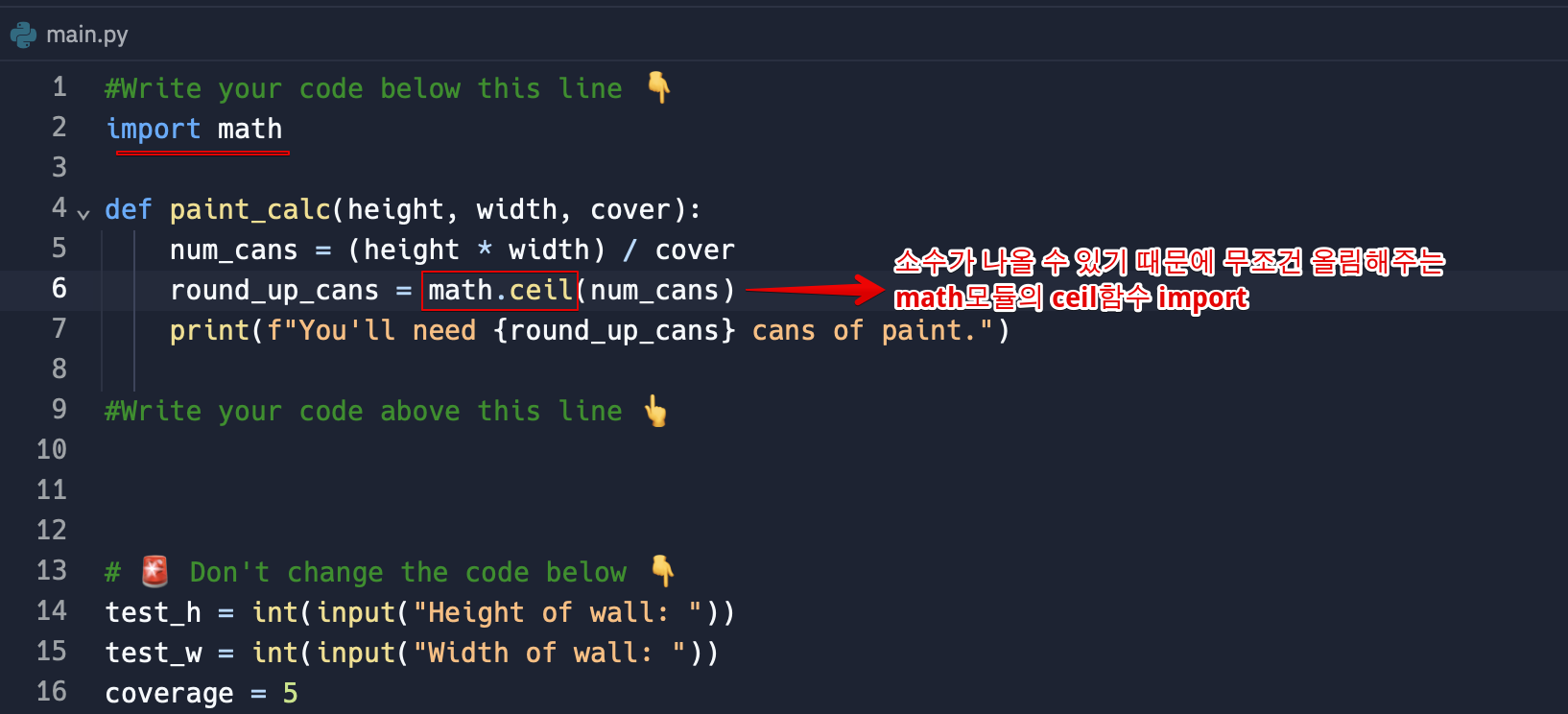
소수 확인기(Prime Number Checker)
소수 : 1과 자기 자신으로만 나눠지는 수를 의미함
ex)
2는 1과 2로만 나눠지므로 소수
4는 1,2,4로 나눠지므로 소수가 아님
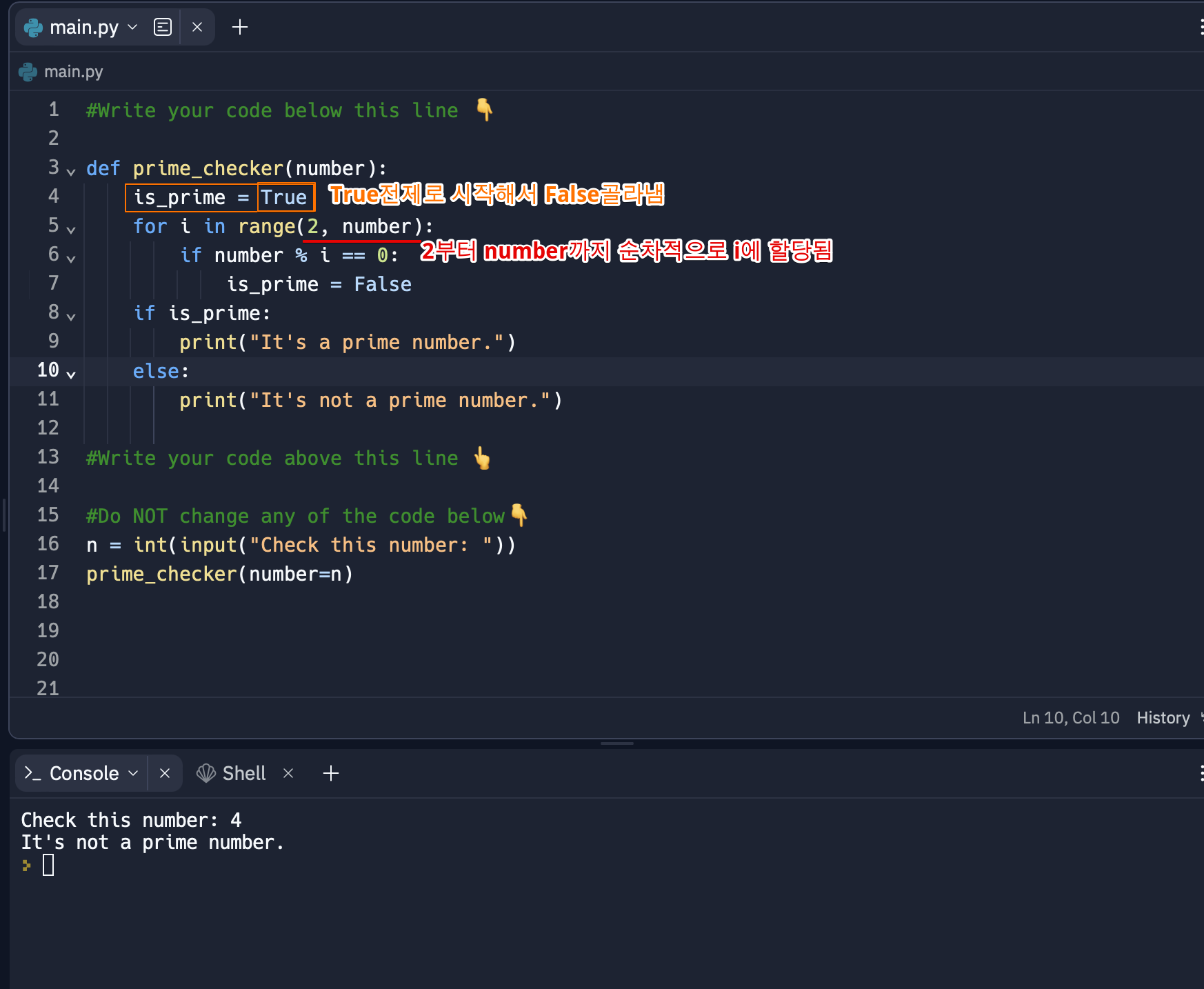
카이사르 암호 - 암호화(encode)
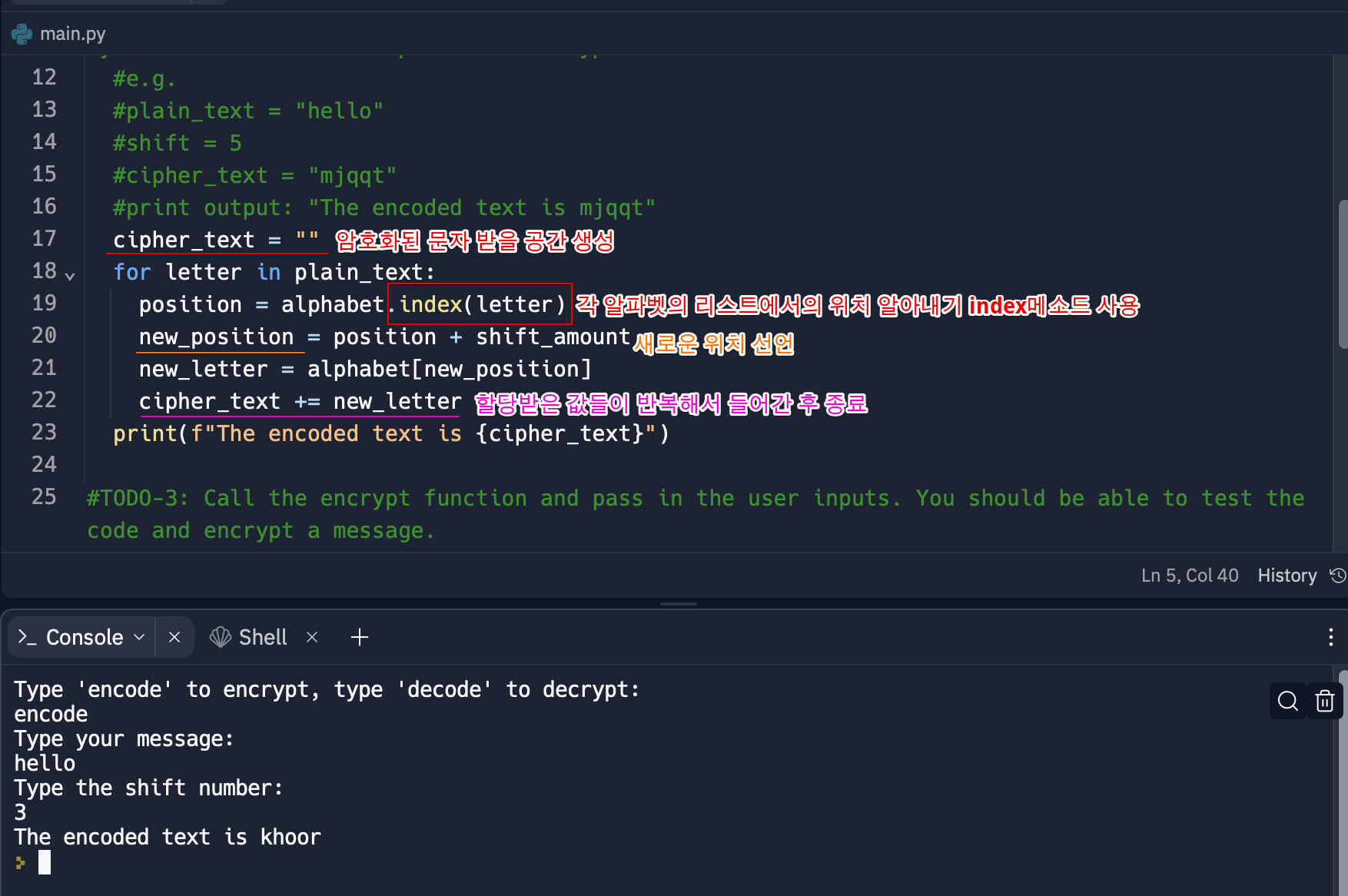
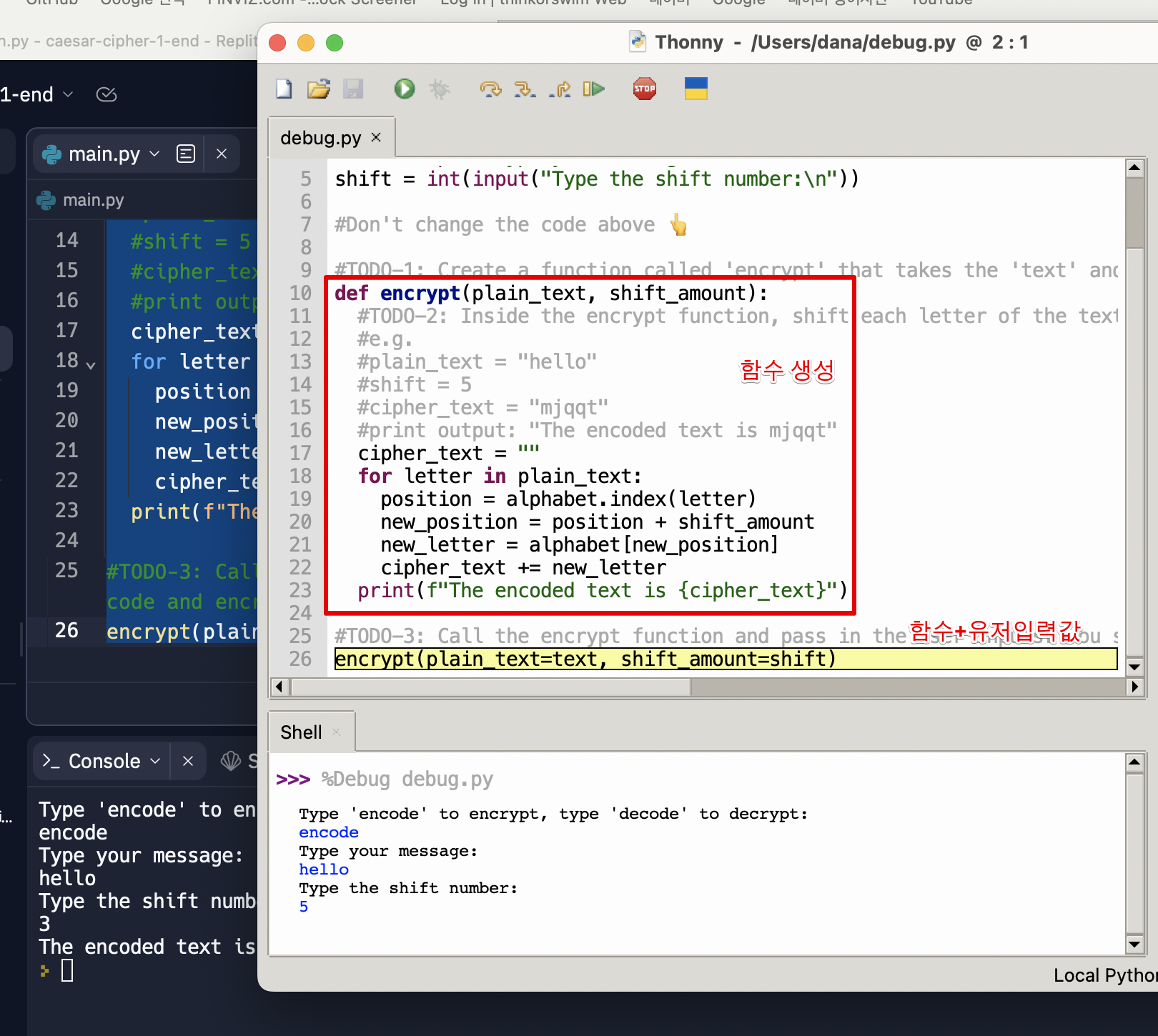
- 아규먼트와 파라미터가 헷갈리지 않게 다르게 써주는 것이 좋음
- 함수 작성한건데 위에 있어서 먼저 실행할 것이라고 착각함. 호출을 해야 읽으러 가는거지 ㅠ
- 키워드 인자(Keyword Arguments) 사용
알파벳 끄트머리에 있는 글자라면?
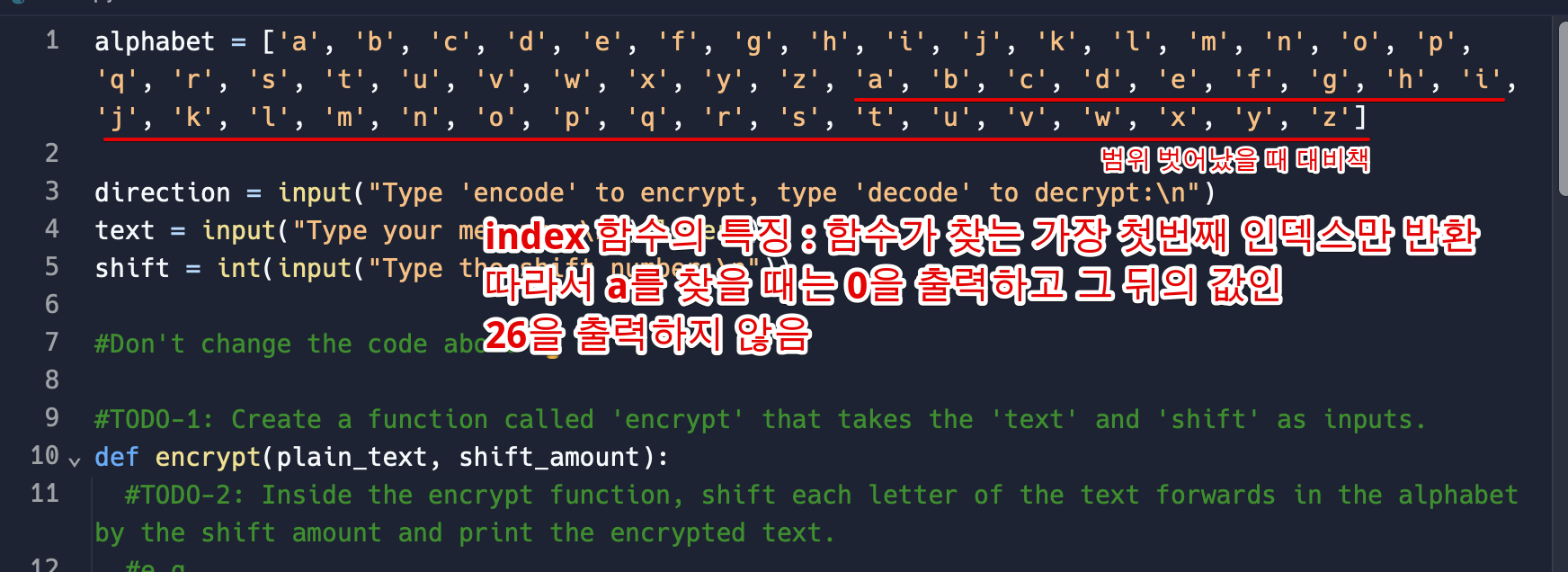
카이사르 암호 - 복호화(decode)
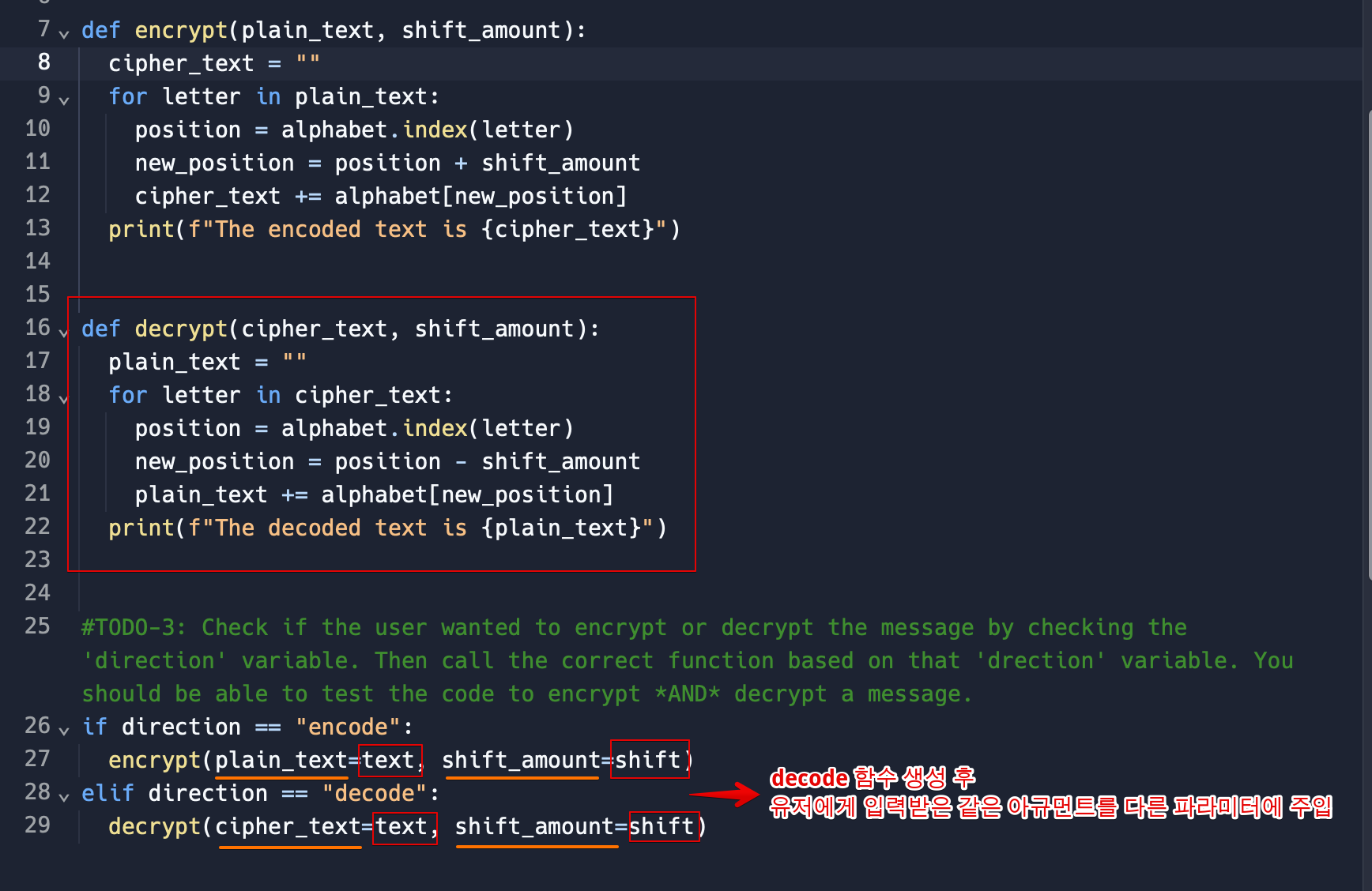
카이사르 암호 - 코드 재구성
encrypt함수와 decrypt함수 합치기
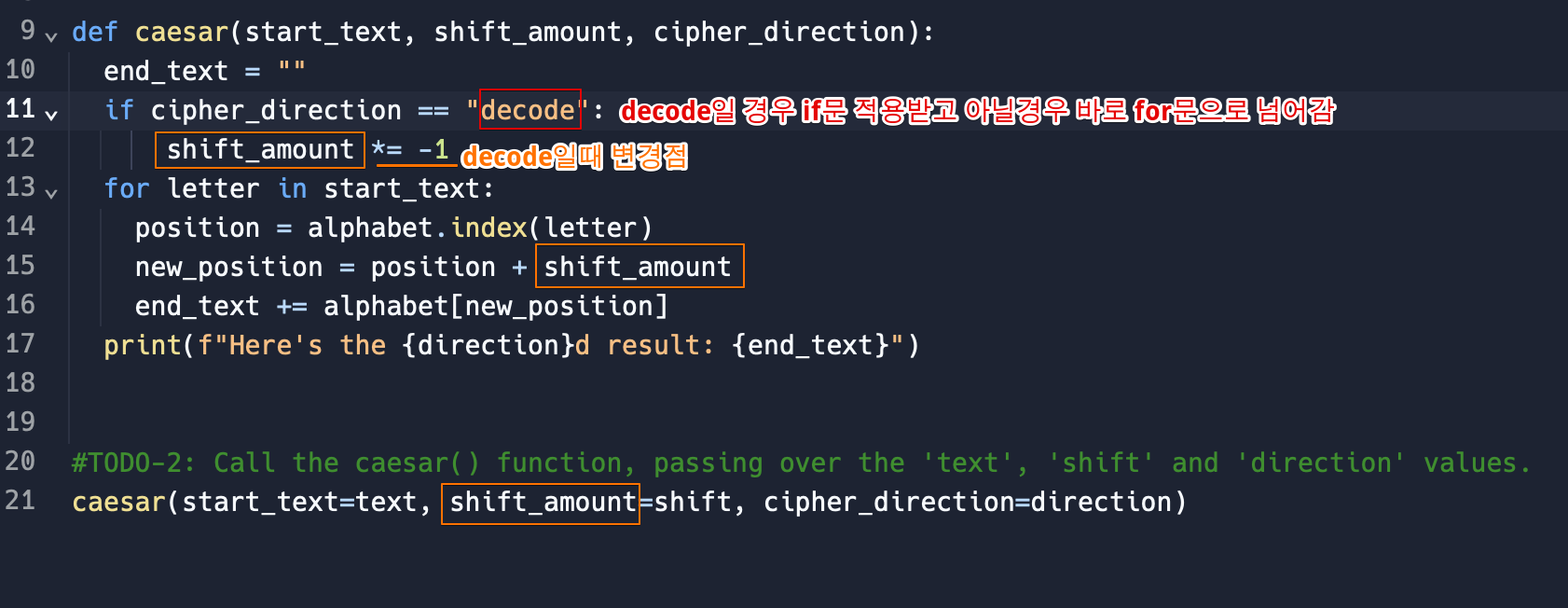
카이사르 암호 - 유저 경험 개선 & 마무리

유저가 알파벳 외의 다른 문자를 포함했을 경우
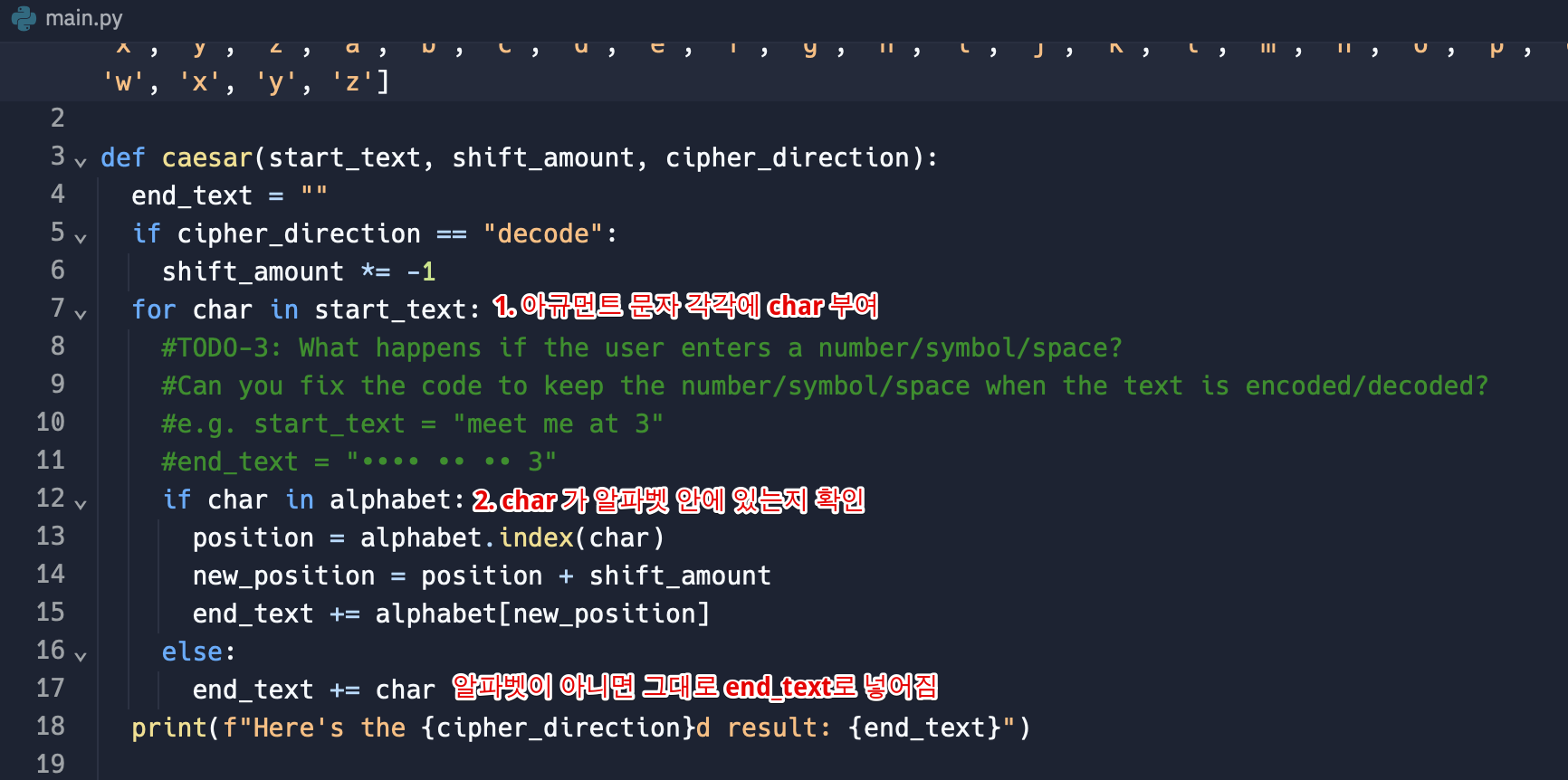
프로그램을 다시 실행해서 다른 메시지를 암호화하거나 복호화할지 물어보는 작업
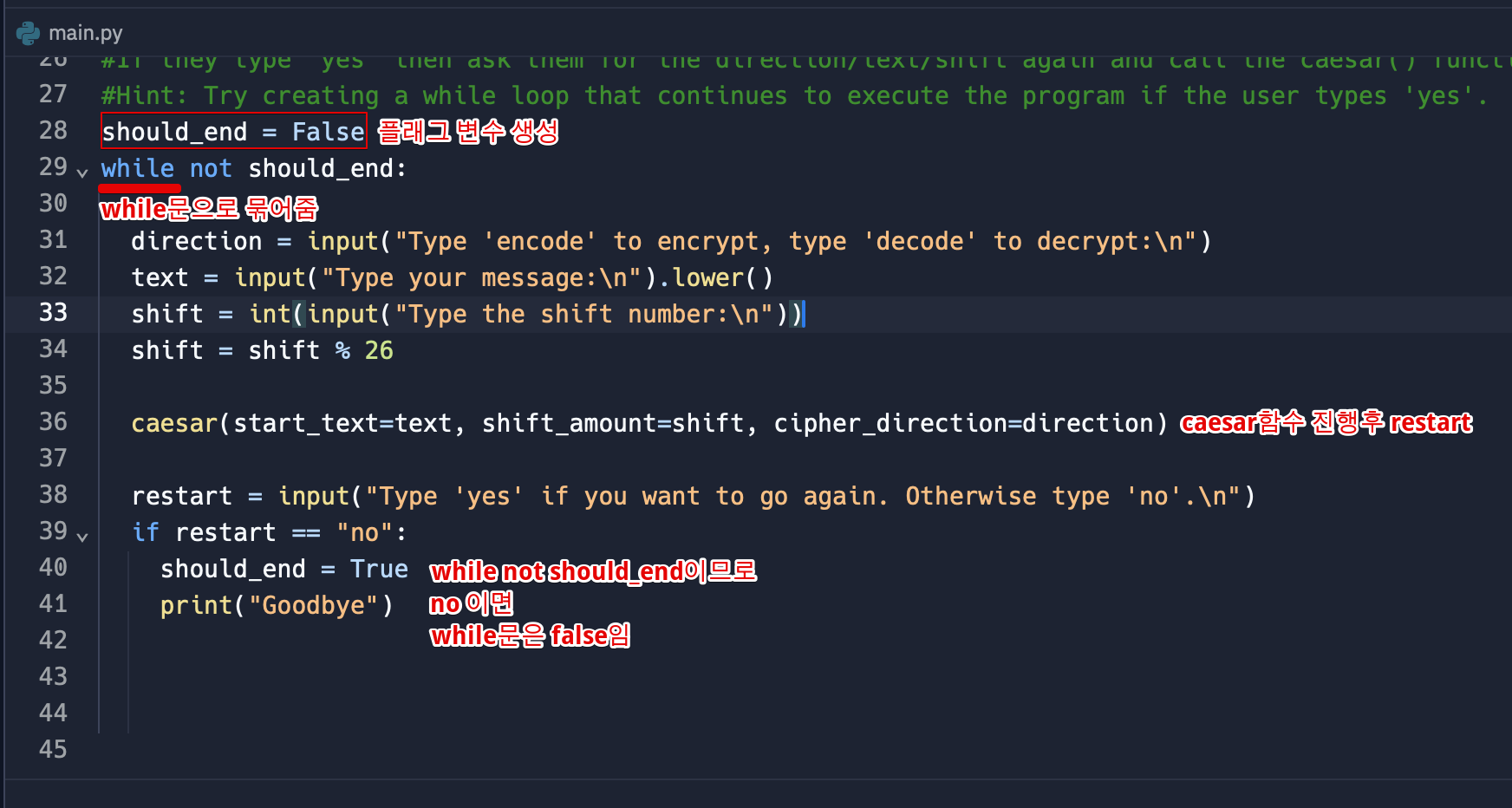
Final code
alphabet = ['a', 'b', 'c', 'd', 'e', 'f', 'g', 'h', 'i', 'j', 'k', 'l', 'm', 'n', 'o', 'p', 'q', 'r', 's', 't', 'u', 'v', 'w', 'x', 'y', 'z', 'a', 'b', 'c', 'd', 'e', 'f', 'g', 'h', 'i', 'j', 'k', 'l', 'm', 'n', 'o', 'p', 'q', 'r', 's', 't', 'u', 'v', 'w', 'x', 'y', 'z']
def caesar(start_text, shift_amount, cipher_direction):
end_text = ""
if cipher_direction == "decode":
shift_amount *= -1
for char in start_text:
if char in alphabet:
position = alphabet.index(char)
new_position = position + shift_amount
end_text += alphabet[new_position]
else:
end_text += char
print(f"Here's the {cipher_direction}d result: {end_text}")
from art import logo
print(logo)
should_end = False
while not should_end:
direction = input("Type 'encode' to encrypt, type 'decode' to decrypt:\n")
text = input("Type your message:\n").lower()
shift = int(input("Type the shift number:\n"))
shift = shift % 26
caesar(start_text=text, shift_amount=shift, cipher_direction=direction)
restart = input("Type 'yes' if you want to go again. Otherwise type 'no'.\n")
if restart == "no":
should_end = True
print("Goodbye")